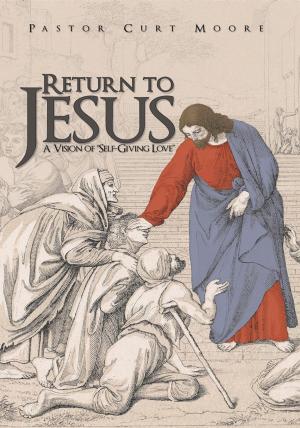Thm a Memoir
Nonfiction, History, Americas, United States, Civil War Period (1850-1877), Biography & Memoir| Author: | David McCallie | ISBN: | 9781449710835 |
| Publisher: | WestBow Press | Publication: | June 22, 2011 |
| Imprint: | WestBow Press | Language: | English |
| Author: | David McCallie |
| ISBN: | 9781449710835 |
| Publisher: | WestBow Press |
| Publication: | June 22, 2011 |
| Imprint: | WestBow Press |
| Language: | English |
Thomas Hooke McCallie wrote a memoir in 1902 reporting for the benefit of his children what he knew of his familys immigration to the New World, of his education at Union Theological Seminary in New York City, of his courtship and marriageand in more detail the trials and tribulations that befell him, his family and his church during the tumultuous years of the Civil War. THM, as the editor calls him throughout the book, opposed secession by his home state of Tennessee and refused to support the Confederacy either as a soldier or as a minister. And, with equal vigor he opposed the Federal governments resolve to preserve the Union by force of arms. His determination not to support either side of the conflict was the perfect formula for being harassed by both sides. Much of the memoir turns on the troubled existence resulting for THM, his family and his church because of his fixed view of right and wrong at this catastrophic moment in our nations history.
In spite of the detailed reporting of pain and privation suffered during the war, the editor feels the real theme of the story is the way THM and his wife face every new crisis with prayerprayer and faith that their prayers would be heard. Early in the war THM preached to Confederates soldiers who found their way to his church and later in the war, after the Union Army occupied Chattanooga, to Union soldiers, never changing the message because of the color of the uniform. The message? That every man, whether dressed in blue or gray, must know the saving Grace of Jesus Christ.
Thomas Hooke McCallie wrote a memoir in 1902 reporting for the benefit of his children what he knew of his familys immigration to the New World, of his education at Union Theological Seminary in New York City, of his courtship and marriageand in more detail the trials and tribulations that befell him, his family and his church during the tumultuous years of the Civil War. THM, as the editor calls him throughout the book, opposed secession by his home state of Tennessee and refused to support the Confederacy either as a soldier or as a minister. And, with equal vigor he opposed the Federal governments resolve to preserve the Union by force of arms. His determination not to support either side of the conflict was the perfect formula for being harassed by both sides. Much of the memoir turns on the troubled existence resulting for THM, his family and his church because of his fixed view of right and wrong at this catastrophic moment in our nations history.
In spite of the detailed reporting of pain and privation suffered during the war, the editor feels the real theme of the story is the way THM and his wife face every new crisis with prayerprayer and faith that their prayers would be heard. Early in the war THM preached to Confederates soldiers who found their way to his church and later in the war, after the Union Army occupied Chattanooga, to Union soldiers, never changing the message because of the color of the uniform. The message? That every man, whether dressed in blue or gray, must know the saving Grace of Jesus Christ.















